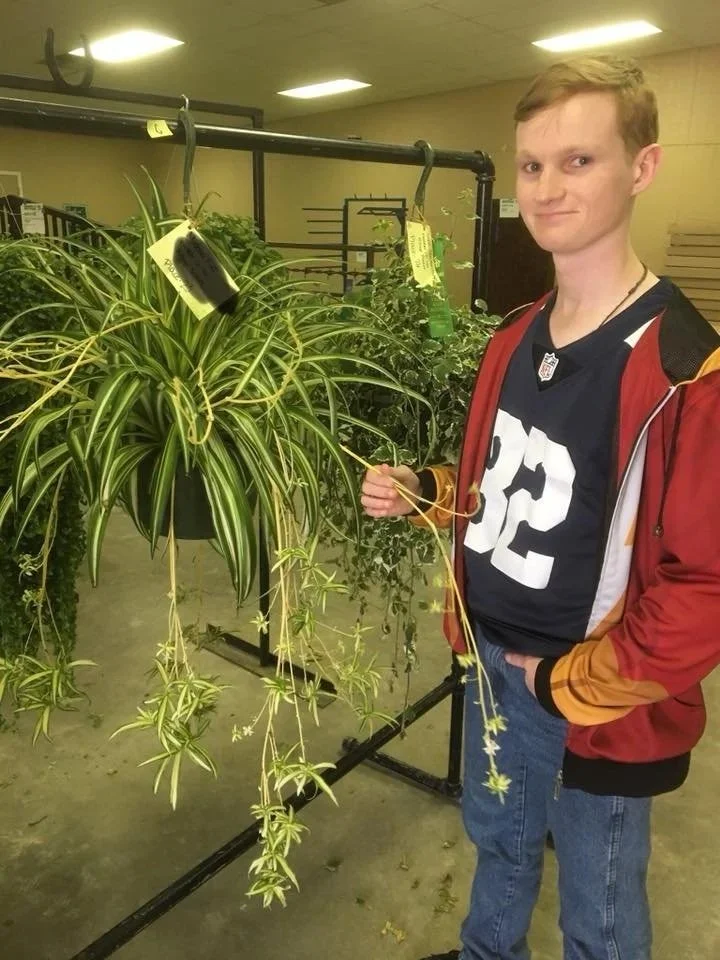Horticulture
Each BAC student attends Horticulture class weekly, developing skills under a full-time horticulturist. Classes cover greenhouse management, landscape design, vegetable and fruit production, and propagation, accommodating all skill levels and disabilities. The supportive environment of BAC's gardens and greenhouses fosters growth and interaction without judgment regarding personal circumstances.
Students benefit from exposure to healthy foods, physical activity, social interactions, patience, fine motor skills through planting and harvesting, and understanding the value of hard work. These lessons extend beyond the garden, providing a strong foundation for their future.
Through engaging in the plant cycle—planting, cultivating, and harvesting—students experience a sense of ownership, pride, and self-confidence:
A student with an emotional disorder admires their work after weeding: “Wow! I did that! It’s beautiful!”
Students use "Bayes Bucks" earned for good behavior to buy healthy produce instead of unhealthy snacks.
Observing caterpillars transform into butterflies, students eagerly release them onto their hands.
Students eagerly share their plants and produce with family during visits.
A student's delight shines as she discovers a large yellow squash hidden among dark leaves.
In a world that is becoming increasingly more digitalized, commercialized, instant, and sterile, we see a tremendous benefit in providing our students with the opportunity to experience the wonder and mystery of God's creation by putting a seed in the ground, watching it sprout and grow over time, and finally plucking the ripe fruit from the earth to enjoy it with others.
And He said, “The kingdom of God is as if a man should scatter seed on the ground. He sleeps and rises night and day, and the seed sprouts and grows; he knows not how. The earth produces by itself, first the blade, then the ear, then the full grain in the ear"
-Mark 4:26-28






